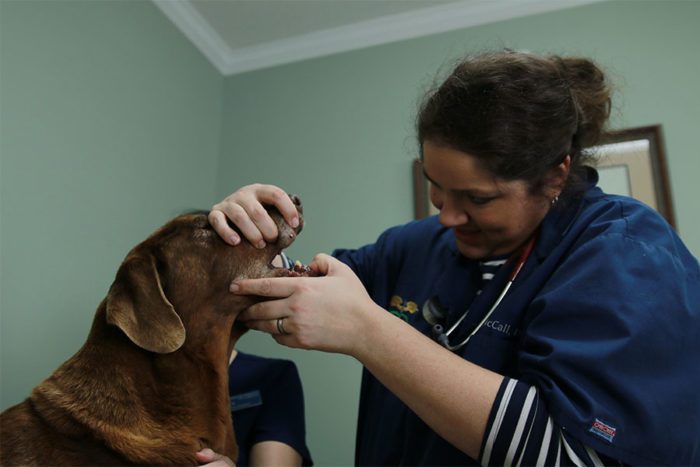UNDERSTANDING & IMPROVING YOUR PET’S MENTAL HEALTH
It’s scientifically proven that having a pet companion can reduce depression, anxiety, and other mental health conditions.
When people are having a rough day or struggling through something, it’s apparent — our personality is affected, and those we’re closest with notice and (hopefully) provide solace. Even in situations when we need to be all alone to feel better, we still take comfort in the presence of our pets. Our four-legged friends are there for us to bring love and joy when we’re feeling lonely or dealing with mental hardships.
But what about pet mental health? How do we as compassionate, grateful pet owners return the favor and protect their wellbeing?
PET DEPRESSION & ANXIETY — WHAT TO LOOK FOR
1. APATHY
Loss of interest is a symptom of depression in both people and pets. When our friends suddenly stop caring about activities they once loved, that’s a clear indicator that something is wrong. Does your dog seem disinterested in their daily walk? Could your cat care less about the stick toy that once brought them excitement? These are signs to be aware of, especially if your cat or dog has additional symptoms.
2. FREQUENT OR INFREQUENT GROOMING
Is your cat or dog overdoing or under-doing their self-care? Dogs with anxiety tend to excessively lick their paws to soothe themselves when experiencing physiological distress. On the other hand, kitties are known to lick themselves clean throughout the day. If you notice your cat’s coat has become dull or matted due to decreased grooming, it would be a good idea to check in on them how you would like a friend who has gone far too long without showering.
3. DISTANCE
It can be heartbreaking when a cat or dog that was once cuddly, ready to play, and always at your side suddenly starts to keep their distance from you. While it’s easy to take this personally, it’s important to remember that behavior like this is a symptom of a pet mental health problem.
PET DEPRESSION & ANXIETY — HOW TO HELP
1. POSITIVE ATTENTION
Spend quality time with your pet partaking in healthy activities they love. Pencil in extra play time, longer walks, and even some tasty treats to keep them engaged. However, while we want to comfort our animal companions when they’re down in the dumps, try not to reward or praise them when they’re sulking — this may send the wrong message.
2. A NEW FRIEND
Has your pet been spending more time alone at home recently? Perhaps you’re back at the office after an extended period working from home. Or, your pet is dealing with an even greater loss, like the loss of a human or fellow-animal friend (yes, pets can experience grief). Bringing home a new best friend for them to play with could improve their mood and allow you to focus on your responsibilities without fear your animal companion isn’t getting the attention they deserve.
3. MEDICATIONS
Similar to people, the right medication can improve your pet’s mental state. Some common medications used to treat anxiety and depression in cats and dogs may even already be in your medicine cabinet. Commonly prescribed medications for pets include Xanax, Valium, Ativan, and Zoloft. Contact us if you think a pet antidepressant or mood stabilizer will improve their quality of life, and we’ll work together to find the right fit.
BLACKSHEAR VETERINARY HOSPITAL — KEEPING YOUR PET HAPPY
At Blackshear Veterinary Hospital, we’re passionate about pets and the people who care for them. We see emotional concerns as troubling as physical ones. We’ll do our best to ensure your best friend is loving at their best. Reach out to us today to schedule an appointment to talk about your furry friends mental health!



